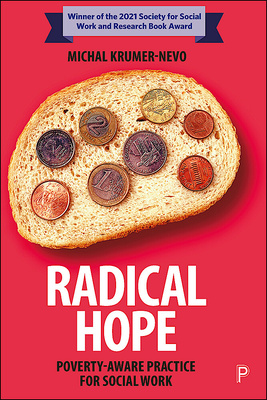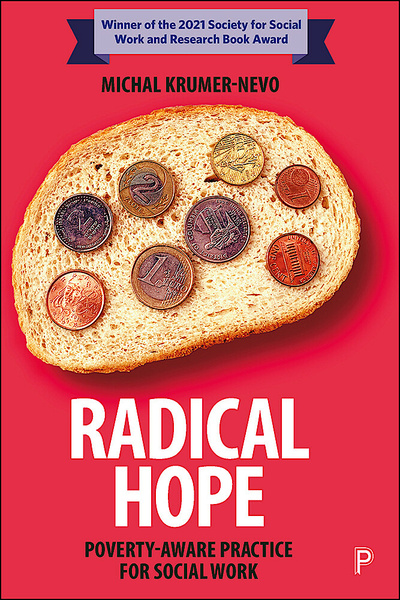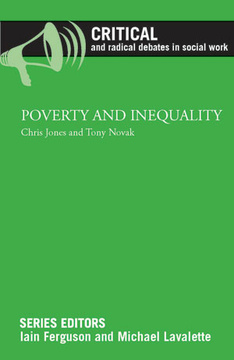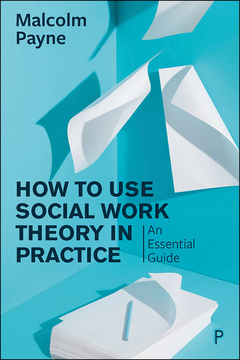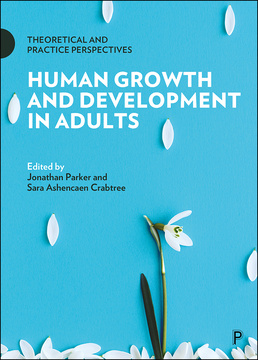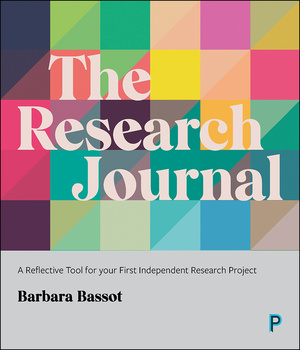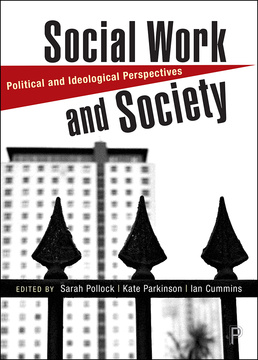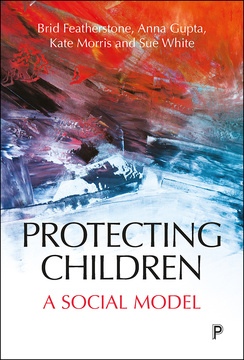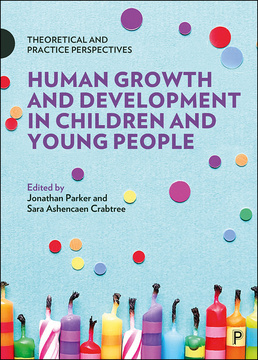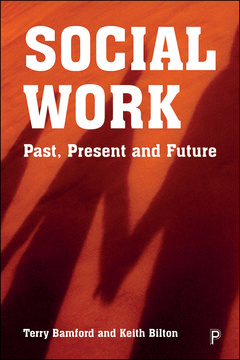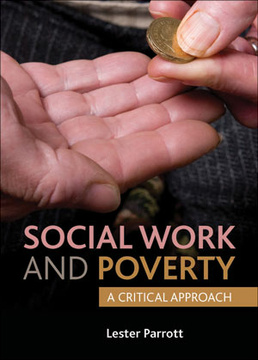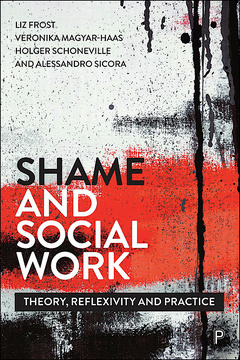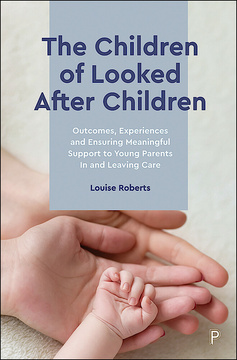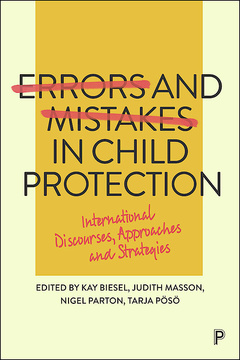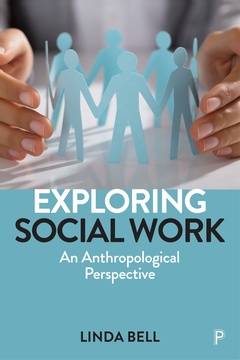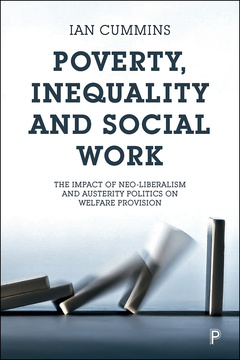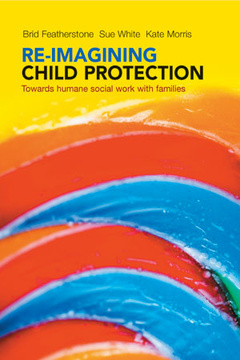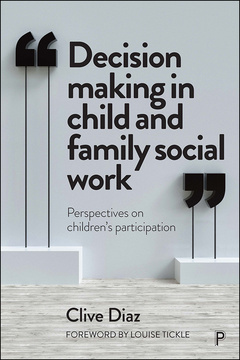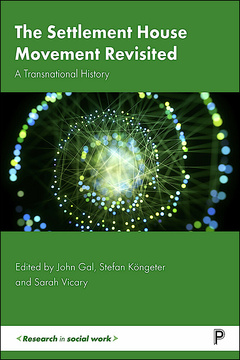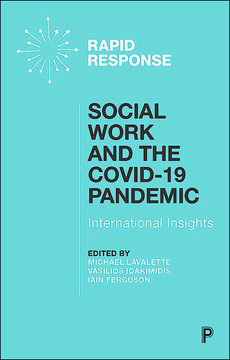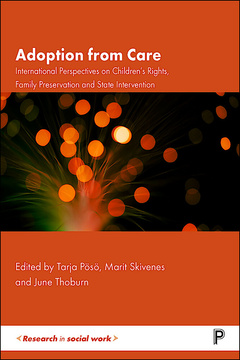Published
Jun 22, 2020Page count
274 pagesISBN
978-1447354901Dimensions
234 x 156 mmImprint
Policy PressPublished
Jun 22, 2020Page count
274 pagesISBN
978-1447354895Dimensions
234 x 156 mmImprint
Policy PressPublished
Jun 22, 2020Page count
274 pagesISBN
978-1447354932Imprint
Policy PressPublished
Jun 22, 2020Page count
274 pagesISBN
978-1447354932Imprint
Policy PressWinner of the 2021 Society for Social Work and Research Book Award
VIDEO: FAQ on Poverty and Poverty Aware Practice (Hebrew with English subtitles)
In this seminal book, Krumer-Nevo introduces the Poverty-Aware Paradigm: a radical new framework for social workers and professionals working with and for people in poverty.
The author defines the core components of the Poverty-Aware Paradigm, explicates its embeddedness in key theories in poverty, critical social work and psychoanalysis, and links it to diverse facets of social work practice.
Providing a revolutionary new way to think about how social work can address poverty, she draws on the extensive application of the paradigm by social workers in Israel and across diverse poverty contexts to provide evidence for the practical advantages of integrating the Poverty-Aware Paradigm into social work practices across the globe.
“Skilfully interweaving theory, ethics and practice, Krumer-Nevo offers a rich and challenging solidaristic model for poverty-aware social work, grounded in recognition of the knowledge of people in poverty. It deserves to be read, and more importantly, acted on.” Ruth Lister, Member of the House of Lords
“Whether you are a seasoned social worker or just entering the field, saturated in burn out or giddy with enthusiasm, a policy maker, practitioner, researcher or activist, Michal Krumer-Nevo has gifted us a book for moving through the current global crisis, for recognizing poverty as a structural and also embodied experience, attending to brutal inequalities and accompanying people in pain. Krumer-Nevo holds our hands through the storm of the moment, gifting us with Poverty-Aware Practice for Social Work, asking us to think structurally, institutionally, relationally and through practice, as we accompany people of dignity and poverty, who need and dream. A brilliant scholar, social worker, writer, educator and citizen of the world, Krumer-Nevo offers us a new critical lens, Radical Hope, for moving toward justice - just when we need it.” Michelle Fine, City University of New York
"Michal Krumer-Nevo has provided us with a brilliant contribution to the problem we in social work have been struggling with over the past six decades - how to conceptualize and practice in a critical way at all levels. Through the prism of poverty, she illustrates a paradigm and model for practice which is tried and tested. The paradigm is impressively effective, from my own experience, as it addresses our common hidden assumptions about poverty and the way these manifest unwittingly in our practice. The poverty aware paradigm does indeed provide "radical hope" in taking our professional forward in these challenging times. I applaud the author, the paradigm and the book and predict it will become known as one of the most significant works of the century." Jan Fook, University of Vermont
"This book is a product of 30 years in the life and work of Michal Krumer-Nevo. I say ‘life and work’ as her vigour, determination, and deeply grounded empathy for people in poverty are woven through the fabric of the book." Journal of Social Work Practice
Michal Krumer-Nevo is a Professor at the Spitzer Department of Social Work at the Ben-Gurion University of the Negev.
Introduction
Poverty-Aware Social Work: A Paradigmatic Proposal
Part One: Transformation
How to Speak Critically about Poverty
How to Write a Critical Case-Study
How to Teach Poverty Critically
Frequently Asked Questions on Poverty and the Poverty-Aware Paradigm
Part Two: Recognition
Poverty, Recognition, Therapy
On needs and Knowledge: Sarit's Story
On Emotional Pain
On Minor Movements of Resistance
Part Three: Rights
What’s Active in Active Exercising of Rights?
Material Help and Flexible Budget
Active Rights Exercising: Advanced
In the Face of Injustice: A Panel
Part Four: Solidarity
When Doubbi Looked for a Home: Standing By Within the Establishment
A Babysitter for a Dollar: Community Development
Between Othering and Solidarity: Crisis Intervention with Children at Risk
“I'm Not that Kind of Person”: Solidarity in Group Intervention







